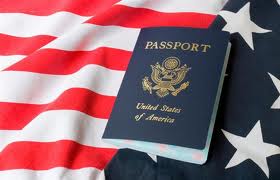 History was made at the US Senate on 12 June this year when Senator Tim Kayne gave a speech in Spanish. The use of languages other than English is sometimes controversial in the United States and there are frequent calls for English to be established as the one official language of the country. It would mean not only that all official documents and procedures be drafted/implemented in English, but more tellingly that anyone applying for US citizenship would be tested on their English language capability.
History was made at the US Senate on 12 June this year when Senator Tim Kayne gave a speech in Spanish. The use of languages other than English is sometimes controversial in the United States and there are frequent calls for English to be established as the one official language of the country. It would mean not only that all official documents and procedures be drafted/implemented in English, but more tellingly that anyone applying for US citizenship would be tested on their English language capability.
In the United Kingdom, those applying for citizenship are required to demonstrate their knowledge of language and life in the UK, either by taking the ‘Life in the UK’ test, which assumes a reasonable level of English, or by enrolling in an accredited ESOL (English for Speakers of Other Languages) class, which must include elements of citizenship. Furthermore, the government has recently announced that applicants for state welfare benefits who are not already fluent will need to take English lessons or risk losing their benefits.
The UK already recognises English as its de-facto official language (with Welsh in Wales), but is also under increasing pressure to provide services in other languages as our populations become more multi-cultural and therefore multi-lingual. Public services such as hospitals and the police are obliged to pay for interpreters for anyone needing assistance in their own language. In March of this year, however, Eric Pickles, The Communities and Local Government Secretary, told councils to ‘stop wasting millions translating leaflets into foreign languages’.
From the other side of the Atlantic, English is very clearly presented as the country’s lingua franca, despite the other significant ethnic communities. The proposed English Language Unity Act would oblige officials in the USA to “preserve and enhance the role of English as the official language of the Federal Government”. The hope is that legal immigrants of all generations will become assimilated, and that sharing one official language will enable the country to establish true commonality. But can a bill such as this really be expected to work, or will it just create more stigma, hostility and division? And what, in practice, would change?
We would welcome your opinions on this subject.

